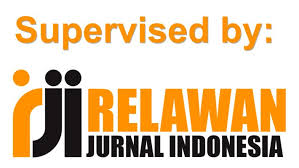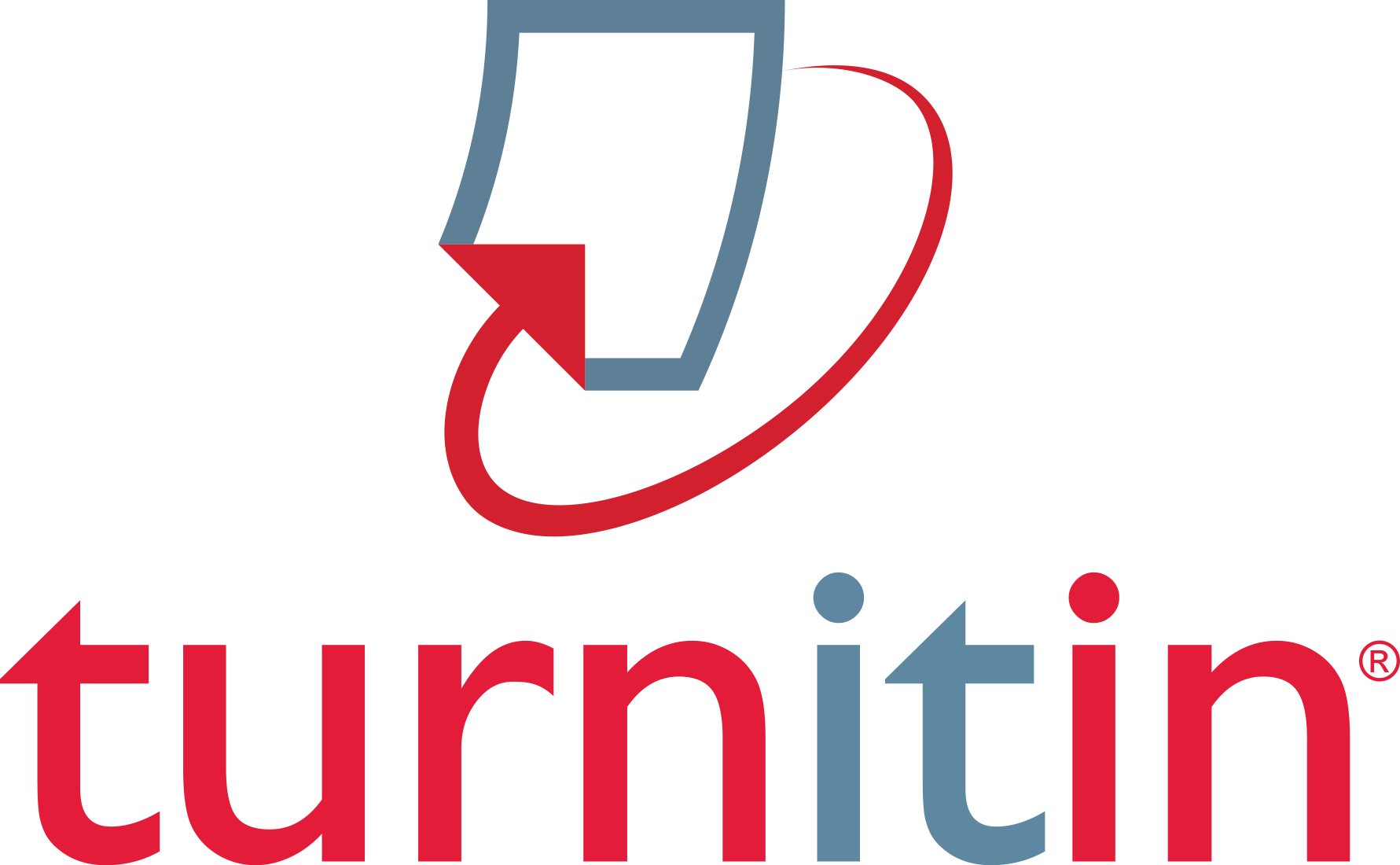Analisis Kesulitan Belajar Mahasiswa pada Mata Kuliah Kalkulus Lanjut
Abstract
Abstract
This study aims to analyze student learning difficulties in advanced calculus courses. This research is a qualitative descriptive study which was conducted in December 2021using test, observation, questionnaire and interview techniques to 27 students of mathematics education class 2020 Gorontalo State University. The results showed that the number of students who obtained UTS score less than 75 reached 77.78% and the number of students who obtained an UAS score less than 75 reached 66.66% and the percentage of students who did not pass the UTS and UAS was around 30%. This fact shows that there are students' difficulties in understanding advanced calculus material. Furthermore, based on the results of questionnaires, interviews, and observations obtained several aspects that cause learning difficulties, namely 1) the initial ability (prior knowledge) related to students' advanced calculus courses is low; 2) advanced calculus material which is abstract and difficult; 3) online learning methods have not taken place optimally
Keyword: Analysis, mathematics learning difficulties
Abstrak
Penelitian ini bertujuan untuk menganalisis kesulitan belajar mahasiswa pada mata kuliah kalkulus lanjut. Penelitian ini merupakan penelitian deskriptif kualitatif yang dilaksanakan pada bulan Desember 2021 dengan teknik tes, observasi, kuesioner dan wawancara terhadap 27 mahasiswa pendidikan matematika angkatan 2020 Universitas Negeri Gorontalo. Hasil penelitian menunjukkan bahwa banyaknya mahasiswa yang memperoleh nilai UTS kurang dari 75 mencapai 77,78 % dan banyaknya mahasiswa yang memperoleh nilai UAS kurang dari 75 mencapai 66,66% serta persentase mahasiswa yang tidak lulus pada UTS dan UAS berkisar 30%. Fakta ini menunjukkan bahwa adanya kesulitan mahasiswa dalam memahami materi kalkulus lanjut. Selanjutnya berdasarkan hasil angket, wawancara, dan observasi diperoleh beberapa aspek yang menyebabkan kesulitan belajar yakni 1) kemampuan awal (prior knowledge) yang terkait dengan mata kuliah kalkulus lanjut mahasiswa rendah; 2) materi kalkulus lanjut yang abstrak dan sulit; 3) metode pembelajaran daring belum berlangsung secara optimal.
Kata Kunci: Analisis, kesulitan belajar matematika.
References
Ali, T. (2011). Exploring Students’ Learning Difficulties in Secondary Mathematics Classroom in Gilgit-Baltistan and Teachers’ Effort to Help Students Overcome These Difficulties. Bulletin of Education and Research, 33(1), 47–69. http://ecommons.aku.edu/pakistan_ied_pdck/81/
Arfinanti, N. (2018). Persepsi Mahasiswa Terhadap Penggunaan Software Geogebra Sebagai Multimedia Pembelajaran Matakuliah Kalkulus Multivariabel. Al-Khwarizmi: Jurnal Pendidikan Matematika Dan Ilmu Pengetahuan Alam, 5(1), 1–12. https://doi.org/10.24256/jpmipa.v5i1.262
Bloch, I., & Gibel, P. (2016). a Model To Analyze the Complexity of Calculus Knowledge At the Beginning of University Course Presentation and Examples. ANNALES de DIDACTIQUE et de SCIENCES COGNITIVES, 24, 183–205.
Buentello-Montoya, D. A., Lomelí-Plascencia, M. G., & Medina-Herrera, L. M. (2021). The role of reality enhancing technologies in teaching and learning of mathematics. Computers and Electrical Engineering, 94(June), 107287. https://doi.org/10.1016/j.compeleceng.2021.107287
Cresswell, C., & Speelman, C. P. (2020). Does mathematics training lead to better logical thinking and reasoning? A cross-sectional assessment from students to professors. PLoS ONE, 15(7 July), 1–21. https://doi.org/10.1371/journal.pone.0236153
Dorko, A. (2021). How students use the ‘see similar example’ feature in online mathematics homework. Journal of Mathematical Behavior, 63(July 2020), 100894. https://doi.org/10.1016/j.jmathb.2021.100894
Durand-Guerrier, V., Hochmuth, R., Nardi, E., & Winsløw, C. (2021). Research and Development in University Mathematics Education. In Research and Development in University Mathematics Education. https://doi.org/10.4324/9780429346859
Ellis, J., Hanson, K., Nuñez, G., & Rasmussen, C. (2015). Beyond Plug and Chug: an Analysis of Calculus I Homework. International Journal of Research in Undergraduate Mathematics Education, 1(2), 268–287. https://doi.org/10.1007/s40753-015-0012-z
Huzaimah, P. Z., & Risma, A. (2021). Hambatan yang dialami siswa dalam pembelajaran daring matematika pada masa pandemi covid-19. Jurnal Cendekia: Jurnal Pendidikan Matematika, 05(01), 533–541.
Iis Holisin. (2007). Pembelajaran Matematika Realistik (PMR). Didaktis, 3(3), 1–68. http://journal.um-surabaya.ac.id/index.php/didaktis/article/viewFile/255/199
Kashefi, H., Ismail, Z., & Yusof, Y. M. (2012). Overcoming Students Obstacles in Multivariable Calculus through Blended Learning: A Mathematical Thinking Approach. Procedia - Social and Behavioral Sciences, 56(Ictlhe), 579–586. https://doi.org/10.1016/j.sbspro.2012.09.691
Martínez-Planell, R., & Trigueros, M. (2021). Multivariable calculus results in different countries. ZDM - Mathematics Education, 53(3), 695–707. https://doi.org/10.1007/s11858-021-01233-6
Mokhtar, S. F., Yusof, Z. M., & Misiran, M. (2012). Factors affecting students’ performance in mathematics. Journal of Applied Sciences Research, 8(8), 4133–4137.
Mundia, L. (2012). The assessment of math learning difficulties in a primary grade-4 child with high support needs: Mixed methods approach. International Electronic Journal of Elementary Education, 4(2), 347–366.
Nurdin, N., & Anhusadar, L. (2020). Efektivitas Pembelajaran Online Pendidik PAUD di Tengah Pandemi Covid 19. Jurnal Obsesi : Jurnal Pendidikan Anak Usia Dini, 5(1), 686. https://doi.org/10.31004/obsesi.v5i1.699
Pramesti, T. I., & Retnawati, H. (2019). Difficulties in learning algebra: An analysis of students’ errors. Journal of Physics: Conference Series, 1320(1). https://doi.org/10.1088/1742-6596/1320/1/012061
Rasmussen C., Ellis J. 2013. In Lindmeir,A. M & Heinze, A. (Eds.). Proceedings of the 37th Conference of the International Group for the Psychology of Mathematics Education. Vol. 4, pp. 73-80. Kiel, Germany: PME.
Sulistyorini, Y., & Napfiah, S. (2019). Analisis Kemampuan Berpikir Kritis Mahasiswa Dalam Memecahkan Masalah Kalkulus. AKSIOMA: Jurnal Program Studi Pendidikan Matematika, 8(2), 279. https://doi.org/10.24127/ajpm.v8i2.1947
Susilo, B. E., Darhim, D., & Prabawanto, S. (2021). Students’ learning difficulties in integral calculus based on critical thinking skills. Journal of Physics: Conference Series, 1918(4). https://doi.org/10.1088/1742-6596/1918/4/042058
Takaendengan, B. R., & Asriadi, A. (2021). Persepsi Mahasiswa Terhadap Pembelajaran Daring Matematika Ideal Di Masa Pandemi Covid-19. Education and Learning Journal, 2(2), 82. https://doi.org/10.33096/eljour.v2i2.106
Tarmizi, R. A. (2010). Visualizing students’ difficulties in learning calculus. Procedia - Social and Behavioral Sciences, 8, 377–383. https://doi.org/10.1016/j.sbspro.2010.12.053
Thompson, P. W., & Harel, G. (2021). Ideas foundational to calculus learning and their links to students’ difficulties. ZDM - Mathematics Education, 53(3), 507–519. https://doi.org/10.1007/s11858-021-01270-1
Utami, Y. P., & Cahyono, D. A. D. (2020). Study At Home: Analisis Kesulitan Belajar Matematika Pada Proses Pembelajaran Daring. Jurnal Ilmiah Matematika Realistik, 1(1), 20–26. https://doi.org/10.33365/ji-mr.v1i1.252
Villafañe, S. M., Bailey, C. P., Loertscher, J., Minderhout, V., & Lewis, J. E. (2011). Development and analysis of an instrument to assess student understanding of foundational concepts before biochemistry coursework. Biochemistry and Molecular Biology Education, 39(2), 102–109. https://doi.org/10.1002/bmb.20464
White, N., & Mesa, V. (2014). Describing cognitive orientation of Calculus I tasks across different types of coursework. ZDM - International Journal on Mathematics Education, 46(4), 675–690. https://doi.org/10.1007/s11858-014-0588-9
Zaffar, A., Quraishi, S. M., Rashid, M., & Ansari, K. (2009). Teaching of Abstract Algebra at Undergraduate Level. 39, 1–12.

This work is licensed under a Creative Commons Attribution 4.0 International License.
Penulis yang menerbitkan karyanya ke jurnal ini setuju dengan persyaratan berikut:
Penulis menyimpan hak cipta dan memberikan hak penerbitan pertama kepada jurnal, dengan karya yang secara serentak dilisensikan di bawah Lisensi: Creative Commons Attribution - Share Alike 4.0 Internasional License yang memungkinkan orang lain membagikan karya dengan pengakuan penerbitan awal dan kepenulisan karya di jurnal ini.











